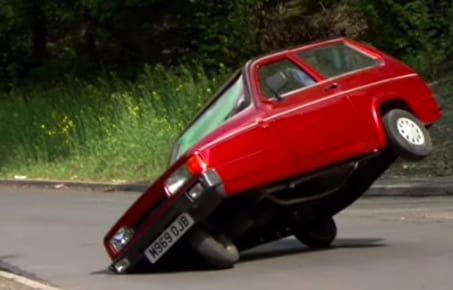Later this month, the COAG Energy Council will meet again to discuss the NEG. The prospect of this policy has become a parlour game for the chattering classes, albeit a rather tedious and low quality game.
With the passage of time and discussion is it possible to say anything new or interesting about the NEG? Here are a few thoughts, you decide if new or interesting.
Firstly on the emission intensity arm of the NEG:
The latest NEG document suggests that retailers can meet their emission intensity obligations by entering into physical contracts with low emission generators or by entering into financial contracts that aggregate up the production of a bunch of low emission generators.
Neither of these are tenable:
- The first is illegal: the counter-party to all grid-dispatched generators in the NEM is AEMO – the NEM is a mandatory “gross” pool. Participants can enter into swap contracts, structured as contracts for difference to the Regional Pool Price in ordet to hedge spot prices, but they can not transact the physical production as the ESB says they can.
- The second is illegal and nonsensical. It is illegal for the same reason as the first and also nonsensical: how can you possibly turn a bunch of physical contracts into a financial contract in a NEM that mandates AEMO as the counter-party to the physical output of all grid-dispatched production?
To make the ESB’s suggestion legal, the NEM would need to be changed from a “gross” pool to a “net” pool (where generators and retailers are free to contract with each other and the pool that is left is merely a residual market for the trading of participant imbalances).
Of course turning the NEM from a gross pool to a net pool will be a massive undertaking, will take many years and cost in the hundreds of millions.
And overlaying an emission intensity obligation on top of this will require huge administrative infrastructure to keep account of all contracts so that retailers can prove that their emission intensity satisfies the obligation.
And it is the retailers that will insist on this: if a retailer has contracted a wind farm they will want to make sure that they capture all of the benefit of its zero emission supply, and that their competitors get none of it. No way to do this with a comprehensive set of accounts and mandatory reporting of all accounts to a central administrator.
Note to lawyers: sumptuous picnic to be found here.
All of this would be unnecessary if the emission intensity obligation could be acquitted through a financial instrument, lets say a “low emission certificate”.
This would leave the existing arrangements in the NEM in tact, would avoid a massive administrative infrastructure to keep count of contracts and would stimulate emission reduction by paying a premium for lower emission production.
Gosh, what a good idea. But let me think, haven’t we heard this before? Oh yes, Alan Finkel proposed it.
Turning to the energy security obligation, the ESB has dropped the obligation to buy slow and fast start capacity. That was obviously impossible to implement.
But it is not quite clear what the ESB has proposed in its place: something about retailers having to contract enough capacity to meet their demand, maybe.
The closest parallel I can find to this is a capacity obligation scheme developed in France over the last seven years.
The French Parliament decided on the approach in 2012 and then asked the French equivalent of AEMO to develop it, the French energy regulator to opine on what was developed and the Minister to then approve it.
That process took seven years. It’s one of a kind: organised capacity markets (such as in all U.S. markets except Texas, the South West Power Pool and in Great Britain) or strategic reserves in energy-only markets (such as in Texas, Sweden or AEMO’s “Reliability and Emergency Reserve Trader” (RERT) scheme) are the norm elsewhere.
The tricky stuff in the French approach is around defining how many capacity certificates different generators create: how do you account for the vagaries of the weather in defining the firm capacity of wind or solar farms, or the forced outage rate impact of large thermal plant?
And on top of this, working out how many certificates retailers have to buy is problematic. The incentive to gold plate is huge.
For mine, I fail to see that we have a capacity problem that justifies any sort of capacity market. We have so many real electricity problems to fix, probably better not to waste time making more. RERT remains beer money and as long as this is the case, I would leave well alone.
And finally, a few gratuitous comments on logic. I have heard it said that in Australia we have not managed to adopt first, second or third best emission reduction policy and so even if the NEG is fourth or fifth best, it is the best we can do and something is better than nothing.

But this is rather like saying we tried to build a car with four wheels and a steering wheel but we failed, so we should settle for one with three and no steering wheel. Robin Reliant anyone?
The logic is absurd and not just for this reason: electricity supply is a constitutional obligation of the jurisdictions not the Commonwealth.
The question in jurisdictional government ministers’ minds should be whether they think they can do better by governing themselves or by ceding their authority to the Commonwealth’s NEG.
Some state governments, notably Victoria, have set out this logic and this seems to me to be the right way to look at it.
And so, knowing what we do about the NEG, what might we say about the self-belief of those jurisdictional government ministers that think the NEG improves on what they can do?
Seen this way, the ESB’s accountability to the jurisdictions and who really should be calling the shots, is more clearly established.
No doubt some political advisors will dismiss this as the mere bleatings of reason, voices in the wilderness and inconsequential against the forces of tribalism. Maybe, but the ballot box has a tendency to sort them out. Sooner or later.
Bruce Mountain is director of energy consultancy CME








